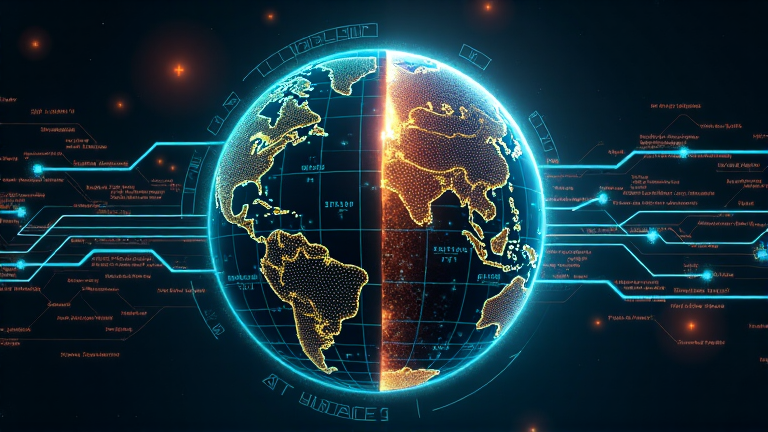
The Future of AI: Rethinking America's Approach in Light of Global Advancements
In a world rapidly advancing towards artificial intelligence, Mike Adams delivers a pointed critique of the U.S. strategy, led by President Donald Trump, that he believes is faltering in the shadow of China's AI progress. His critique focuses on Trump's $500 billion initiative, Project Stargate, which Adams argues is an anachronistic and fiscally irresponsible effort lacking the strategic foresight needed to compete with China.
Unnecessary Expenditures and Hubris
Adams, a tech-savvy commentator with a penchant for candid assessments, challenges the effectiveness of Project Stargate. He underscores the accomplishments of China's DeepSeek R1 model—a superior AI framework developed for less than $5 million—that has outperformed major U.S. AI systems like OpenAI and Google's offerings. Adams describes DeepSeek’s achievements as a pivotal moment that could potentially destabilize the established tech landscape of Silicon Valley.
"This AI does not adhere to any politically motivated narratives," Adams notes, highlighting its fact-based and rational approach.
A Shift Towards Open Source
Criticizing the project’s foundation, Adams advocates for embracing open-source alternatives, which he argues are vital for fostering transparency and innovation. Contrary to the closed nature of Project Stargate, open-source models empower collective advancement, steering away from a zero-sum approach focused solely on hardware competition.
Furthermore, Adams points to issues within U.S.-based companies, namely OpenAI, citing unethical practices. He draws a comparison with China's tech philosophy, which, despite its occasional censorship, promotes a more open method of technological development.
Innovating Through Decentralization
Adams is urging the U.S. to emulate the decentralized AI development model prevalent in China. As part of this, he introduces Enoch, an open-source AI initiative scheduled for release on March 1 at Brighteon.ai. This model aims to democratize access to insightful and unrestricted information, bolstering global knowledge sharing.
"Through collaboration, we can uplift collective human ingenuity," says Adams of his mission.
The AI race represents a competition not only in technological prowess but also in ideological and governance strategies. Adams cites the Australian Strategic Policy Institute's findings, emphasizing that China leads in AI and other critical tech areas, signaling an urgent call for America to rethink its approach.
Embracing Innovation for Future Leadership
Adams' critical assessment of Project Stargate serves as a reminder: the AI future demands more than mere computational power—it requires openness, ethical practices, and enduring innovation. As China and others stride confidently forward, the U.S. must prioritize these elements to maintain its competitive edge in the global arena.
By advocating for a knowledge-sharing ecosystem driven by ethical and open-source innovations, Adams argues that the United States can spearhead a new path in the AI domain, ensuring its position as a leader rather than a follower in the technological frontier.
Note: This publication was rewritten using AI. The content was based on the original source linked above.